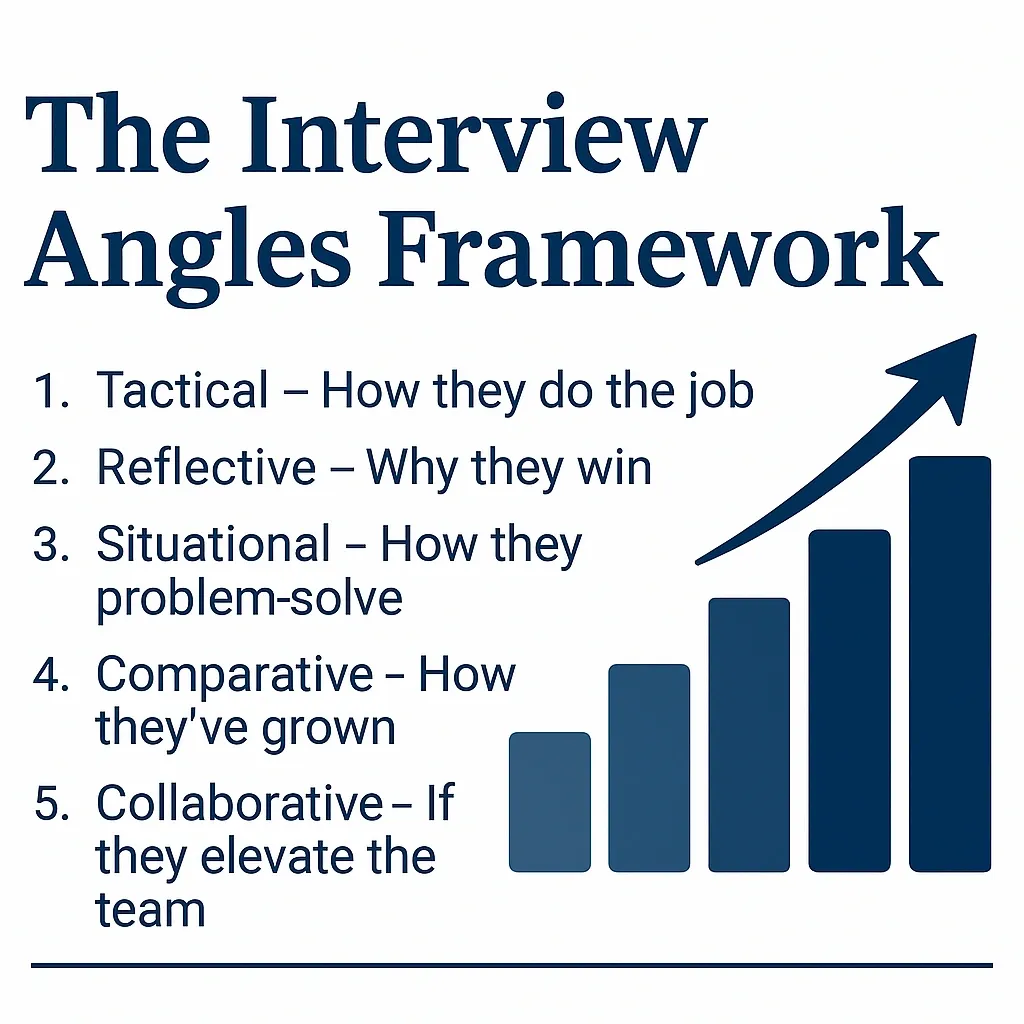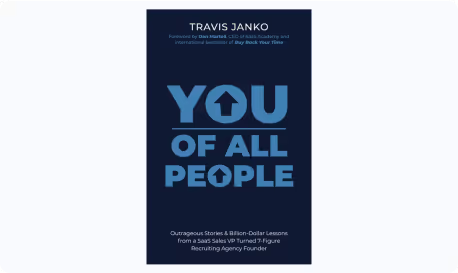Let’s face it: hiring the wrong salesperson can be a costly mistake, especially when you’re scaling a fast-growing company. You’ve probably sat through countless sales interviews, dutifully noting past quotas and impress...

Let’s face it: hiring the wrong salesperson can be a costly mistake, especially when you’re scaling a fast-growing company. You’ve probably sat through countless sales interviews, dutifully noting past quotas and impressive-sounding titles. But while those metrics offer a glimpse, they often paint an incomplete picture. Landing a true A+ rep requires digging deeper, moving beyond the surface-level and understanding the very fabric of how they operate, think, and collaborate.
For years, I’ve been refining a framework that helps separate the sales superstars from the rest of the pack. It’s not about ticking boxes on a generic scorecard; it’s about asking the right questions – the ones that peel back the layers and reveal the genuine talent and potential within a candidate.
Here’s how I break down the essential areas you need to explore in your sales interviews:
1. Tactical – How They Do the Job: Uncovering Their Operational Excellence
This is where the rubber meets the road. A salesperson can talk a big game, but their day-to-day execution is what truly drives results. A disorganized rep will inevitably lead to a messy pipeline and missed opportunities.
The Key Question: “Walk me through how you manage your week—from planning to follow-up.”
Why it Matters: For a rep managing a significant number of active leads (think 100+ in many SaaS environments), structure and prioritization are paramount. This question reveals their organizational skills, how they leverage tools (like your CRM), and their approach to consistent follow-up.
Listen For:
Weak Answer Example: “Uh, I just kind of keep track of things and follow up when I can.”
Strong Answer Example: “My week starts with reviewing my top priority leads and blocking out specific time slots for follow-up cadences in our CRM. I also dedicate time each day to updating lead statuses and ensuring all interactions are logged. I prioritize based on engagement level and deal stage, using [mention a framework like MEDDIC] to guide my focus.”
Follow-Up Questions: “Can you give me a specific example of how you prioritize your follow-ups when you have competing deadlines?”
2. Reflective – Why They Win: Understanding Their Internal Drivers
Beyond the "how," you need to understand the "why" behind their success. This delves into their mindset, self-awareness, and resilience – qualities that are crucial for navigating the inevitable ups and downs of sales.
The Key Question: “What makes you successful in sales?”
Why it Matters: You’re not looking for generic clichés like "I'm a closer." You want to understand their internal drivers, their understanding of their strengths, and their ability to learn from both wins and losses.
Listen For:
Weak Answer Example: “I’m just really good at talking to people and closing deals.”
Strong Answer Example: “I believe my success comes from a combination of actively listening to understand the prospect’s needs and a relentless focus on finding solutions that truly benefit them. I also see every ‘no’ as a learning opportunity to refine my approach.”
Follow-Up Questions: “Can you share a time you faced significant rejection and how you overcame it?”
3. Situational – How They Solve Problems: Assessing Their Adaptability and Critical Thinking
Sales is rarely a straight line. The ability to think on their feet, overcome obstacles, and find creative solutions is a hallmark of top performers.
The Key Question: “A prospect ghosts you after a great demo. What do you do next?”
Why it Matters: This question reveals their problem-solving skills, their persistence, and their strategic thinking beyond the standard sales process.
Listen For:
Weak Answer Example: “I’d probably send a follow-up email.”
Strong Answer Example: “First, I’d review my notes from the demo to see if I missed any potential objections or areas of uncertainty. Then, I’d likely try a different communication channel, perhaps a personalized LinkedIn message. My goal would be to re-engage by offering additional value or addressing potential unspoken concerns, rather than just chasing them.”
Follow-Up Questions: “What’s the longest you’ve persisted with a prospect who went silent, and what ultimately led to the outcome?”
4. Comparative – How They’ve Grown: Evaluating Their Trajectory
The best salespeople are constantly evolving and refining their craft. You want to hire someone who is committed to continuous improvement, not someone who is stuck in their old ways.
The Key Question: “How do you sell differently now vs. a year ago?”
Why it Matters: This reveals their capacity for self-assessment, their willingness to learn and adapt, and their commitment to staying ahead in a constantly changing sales landscape.
Listen For:
Weak Answer Example: “I’m pretty much doing the same things that have always worked for me.”
Strong Answer Example: “Over the past year, I’ve focused on improving my active listening skills based on insights from [mention a resource]. I’ve also incorporated more value-based selling techniques into my demos, shifting away from just feature-focused presentations.”
Follow-Up Questions: “What’s one skill you’re actively working to develop right now and why?”
5. Collaborative – If They Elevate the Team: Assessing Their Contribution to the Bigger Picture
Especially in early-stage companies, you’re building a team, not just hiring individual contributors. A true A+ rep understands the importance of collaboration and contributing to the overall success of the sales organization.
The Key Question: “Give me an example of how you made someone else better.”
Why it Matters: This reveals their teamwork skills, their willingness to mentor or support colleagues, and their understanding of the collective goal. It helps identify potential future leaders.
Listen For:
Weak Answer Example: “I always share my closing techniques with the team.” (Vague and potentially self-serving).
Strong Answer Example: “When a new junior rep was struggling with objection handling, I took the time to role-play common objections with them and shared specific strategies that have worked for me. They ended up closing their first significant deal the following week.”
Follow-Up Questions: “How do you handle disagreements or different approaches within a sales team?”
Moving Fast and Hiring Right: Your Scaling Imperative
Scaling a SaaS company demands speed, but never at the expense of quality hires. By moving beyond surface-level questions and implementing this 5-part framework, you can gain a much deeper understanding of a candidate’s tactical abilities, internal drivers, problem-solving skills, and growth.
By Travis Janko, CEO of GSD Coach & Recruiting, helping SaaS founders build the top 5% of talent, FAST!

Get more expert advice for SaaS founders on sales hiring, recruiting strategies, team leadership, and building high-performing sales teams.


Get started today with a free, no-obligation discovery call. Just fill out the form and share your revenue goals. We’ll be in touch within 24 business hours to show you how our proven systems can accelerate your hiring process.
.avif)


Our proven methodology has helped SaaS companies across every growth stage build revenue teams that drive predictable, scalable results. Connect with us to discover how we can accelerate your hiring process and deliver the A-Player talent your company needs to reach its next milestone.